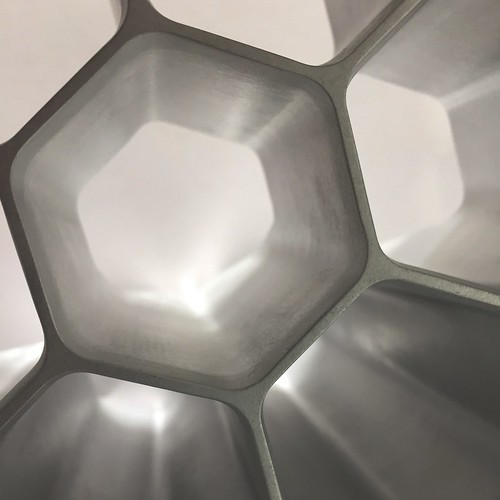Th antiviral activity and iron metabolism in small animal models or possible clinical 15900046 studies. However, well-designed clinical studies addressing safety and longterm efficacy are needed in order to clarify the risks and benefits of hepcidin-targeted treatment. In summary, we show for the first time that hepcidin can attenuate HCV replication and that this antiviral activity is through activation of STAT3. A strategy to augment hepcidin expression or hepcidin enhancing agents may be an effective therapy to treat patients with chronic hepatitis C, including those with existing interferon resistance.Hepcidin Exhibits Antiviral Activity against HCVAcknowledgmentsWe thank Jason Zakkoja and Ton Wang for critical reading of the manuscript and Xiaokui Zhang for technical support.Author ContributionsConceived and designed the experiments: CL HYL. Performed the experiments: HYL. Analyzed the data: HYL CL. Contributed reagents/ materials/analysis tools: HJD RK DN TLT. Wrote the paper: HYL CL.
Immunogenicity and Acceptance of MedChemExpress 3PO influenza A (H1N1) Vaccine in a Cohort of Chronic Hepatitis C Patients Receiving Pegylated-Interferon Treatment???Manuel Hernandez-Guerra1,2*, Yanira Gonzalez-Mendez1, Patricia de Molina3, Antonio Z. Gimeno1 1 1 ???Garcia , Marta Carrillo , Carlos Casanova , Tomas Pumarola3,4, Alejandro Jimenez2, Miriam Hernandez?Porto5, Alvaro Torres5, Enrique Quintero1,1 Liver Unit, University Hospital of the Canary Islands, Tenerife, Spain, 2 Research Unit, University Hospital of the Canary Islands, Tenerife, Spain, 3 Barcelona Centre for ??International Health Research (CRESIB), Hospital Clinic-Universitat de Barcelona, Barcelona, Spain, 4 Department of Clinical Microbiology, Hospital Clinic, School of Medicine, University of Barcelona, Barcelona, Spain, 5 Preventive Medicine and Public Health Department, University of La Laguna, Tenerife, SpainAbstractBackground Aims: Individuals at risk of (H1N1) influenza 15755315 A infection are recommended to receive vaccination. Chronic hepatitis C (CHC) patients receiving treatment might be at a higher risk of respiratory bacterial infections after influenza infection. However, there are no observational studies evaluating the immunogenicity, tolerance and acceptance of 2009 influenza A vaccine in CHC patients. Methods: We evaluated the immunogenicity of influenza A vaccine (PandemrixH) by using the hemagglutination inhibition (HI) titers method in a well defined cohort of CHC patients receiving or not receiving pegylated-interferon and ribavirin, and compared it with healthy subjects (controls). A group of patients with inflammatory bowel disease (IBD) under immunosuppression, thought to have a lower immune response to seasonal influenza vaccine, were  also included as a negative control group. In addition, tolerance to injection site reactions and acceptance was assessed by a validated questionnaire (Vaccinees’ perception of injection-VAPI-questionnaire). Results: Of 114 subjects MedChemExpress BTZ-043 invited to participate, 68 accepted and, after exclusions, 72 were included. Post-vaccination geometric mean titers and seroprotection/seroconversion rates were optimal in CHC patients with ongoing treatment (n = 15; 232, CI95 46?166; 93 ; 93 ), without treatment (n = 10; 226, CI95 69?43: 100 ; 100 ) and controls (n = 15;168, CI95 42?80; 93 ; 86 ) with no differences between groups (P = 0.8). In contrast, IBD patients had a significantly lower immunogenic response (n = 27; 60, CI95 42?80;66 ;66 ; P = 0.006). All the groups sh.Th antiviral activity and iron metabolism in small animal models or possible clinical 15900046 studies. However, well-designed clinical studies addressing
also included as a negative control group. In addition, tolerance to injection site reactions and acceptance was assessed by a validated questionnaire (Vaccinees’ perception of injection-VAPI-questionnaire). Results: Of 114 subjects MedChemExpress BTZ-043 invited to participate, 68 accepted and, after exclusions, 72 were included. Post-vaccination geometric mean titers and seroprotection/seroconversion rates were optimal in CHC patients with ongoing treatment (n = 15; 232, CI95 46?166; 93 ; 93 ), without treatment (n = 10; 226, CI95 69?43: 100 ; 100 ) and controls (n = 15;168, CI95 42?80; 93 ; 86 ) with no differences between groups (P = 0.8). In contrast, IBD patients had a significantly lower immunogenic response (n = 27; 60, CI95 42?80;66 ;66 ; P = 0.006). All the groups sh.Th antiviral activity and iron metabolism in small animal models or possible clinical 15900046 studies. However, well-designed clinical studies addressing  safety and longterm efficacy are needed in order to clarify the risks and benefits of hepcidin-targeted treatment. In summary, we show for the first time that hepcidin can attenuate HCV replication and that this antiviral activity is through activation of STAT3. A strategy to augment hepcidin expression or hepcidin enhancing agents may be an effective therapy to treat patients with chronic hepatitis C, including those with existing interferon resistance.Hepcidin Exhibits Antiviral Activity against HCVAcknowledgmentsWe thank Jason Zakkoja and Ton Wang for critical reading of the manuscript and Xiaokui Zhang for technical support.Author ContributionsConceived and designed the experiments: CL HYL. Performed the experiments: HYL. Analyzed the data: HYL CL. Contributed reagents/ materials/analysis tools: HJD RK DN TLT. Wrote the paper: HYL CL.
safety and longterm efficacy are needed in order to clarify the risks and benefits of hepcidin-targeted treatment. In summary, we show for the first time that hepcidin can attenuate HCV replication and that this antiviral activity is through activation of STAT3. A strategy to augment hepcidin expression or hepcidin enhancing agents may be an effective therapy to treat patients with chronic hepatitis C, including those with existing interferon resistance.Hepcidin Exhibits Antiviral Activity against HCVAcknowledgmentsWe thank Jason Zakkoja and Ton Wang for critical reading of the manuscript and Xiaokui Zhang for technical support.Author ContributionsConceived and designed the experiments: CL HYL. Performed the experiments: HYL. Analyzed the data: HYL CL. Contributed reagents/ materials/analysis tools: HJD RK DN TLT. Wrote the paper: HYL CL.
Immunogenicity and Acceptance of Influenza A (H1N1) Vaccine in a Cohort of Chronic Hepatitis C Patients Receiving Pegylated-Interferon Treatment???Manuel Hernandez-Guerra1,2*, Yanira Gonzalez-Mendez1, Patricia de Molina3, Antonio Z. Gimeno1 1 1 ???Garcia , Marta Carrillo , Carlos Casanova , Tomas Pumarola3,4, Alejandro Jimenez2, Miriam Hernandez?Porto5, Alvaro Torres5, Enrique Quintero1,1 Liver Unit, University Hospital of the Canary Islands, Tenerife, Spain, 2 Research Unit, University Hospital of the Canary Islands, Tenerife, Spain, 3 Barcelona Centre for ??International Health Research (CRESIB), Hospital Clinic-Universitat de Barcelona, Barcelona, Spain, 4 Department of Clinical Microbiology, Hospital Clinic, School of Medicine, University of Barcelona, Barcelona, Spain, 5 Preventive Medicine and Public Health Department, University of La Laguna, Tenerife, SpainAbstractBackground Aims: Individuals at risk of (H1N1) influenza 15755315 A infection are recommended to receive vaccination. Chronic hepatitis C (CHC) patients receiving treatment might be at a higher risk of respiratory bacterial infections after influenza infection. However, there are no observational studies evaluating the immunogenicity, tolerance and acceptance of 2009 influenza A vaccine in CHC patients. Methods: We evaluated the immunogenicity of influenza A vaccine (PandemrixH) by using the hemagglutination inhibition (HI) titers method in a well defined cohort of CHC patients receiving or not receiving pegylated-interferon and ribavirin, and compared it with healthy subjects (controls). A group of patients with inflammatory bowel disease (IBD) under immunosuppression, thought to have a lower immune response to seasonal influenza vaccine, were also included as a negative control group. In addition, tolerance to injection site reactions and acceptance was assessed by a validated questionnaire (Vaccinees’ perception of injection-VAPI-questionnaire). Results: Of 114 subjects invited to participate, 68 accepted and, after exclusions, 72 were included. Post-vaccination geometric mean titers and seroprotection/seroconversion rates were optimal in CHC patients with ongoing treatment (n = 15; 232, CI95 46?166; 93 ; 93 ), without treatment (n = 10; 226, CI95 69?43: 100 ; 100 ) and controls (n = 15;168, CI95 42?80; 93 ; 86 ) with no differences between groups (P = 0.8). In contrast, IBD patients had a significantly lower immunogenic response (n = 27; 60, CI95 42?80;66 ;66 ; P = 0.006). All the groups sh.